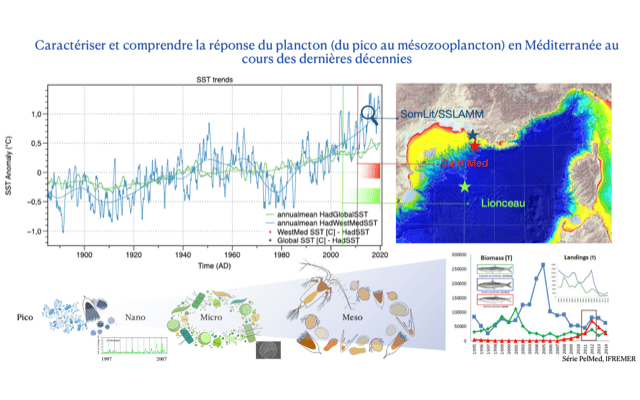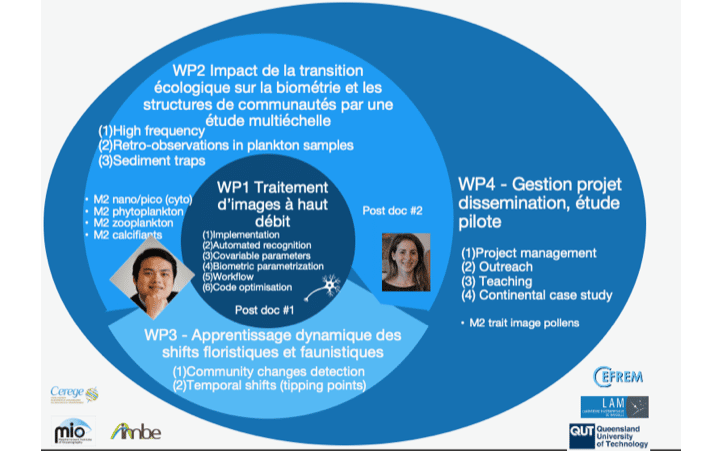RAPMED project
The RapMed project aims to study the effects of recent environmental changes over the last two decades on plankton communities in the sentinel region of the Gulf of Lion.
A recent transition in plankton communities, with a decrease in plankton size, is synchronous with a drastic decrease in fisheries.
To understand the processes involved, the project will explore the dynamics of planktonic communities at high resolution, at all size scales, based on the application and standardisation of high-speed image processing methods. RapMed will implement an innovative processing chain, based on machine learning approaches (convolutional neural networks).
The results of RapMed will provide a better understanding of the variability of planktonic communities, and their resilience to environmental change.
RAPMED
CEREGE lead : Thibault de Garidel-ThoronCEREGE
Automated plankton recognition to identify transitions and ecological shifts in the Mediterranean
Partners : CEREGE, MIOLAM, CEFREM, Queensland Univ. Technology
Funding: Mediterranean Institute for Environmental Transition (ITEM) A*Midex, Aix-Marseille University
Website: rapmed.osupytheas.com



